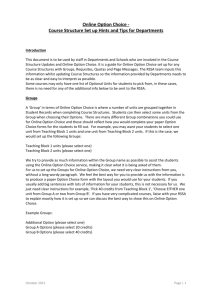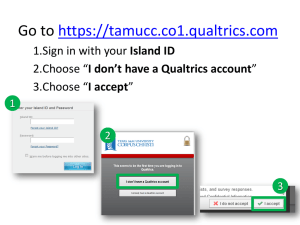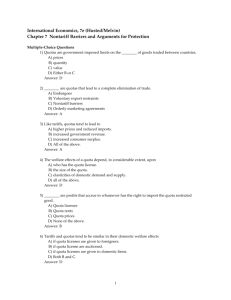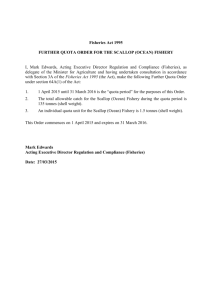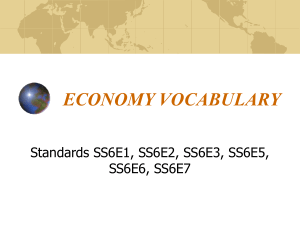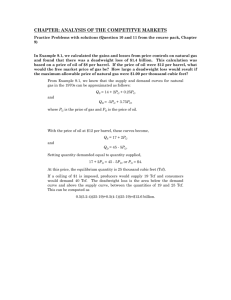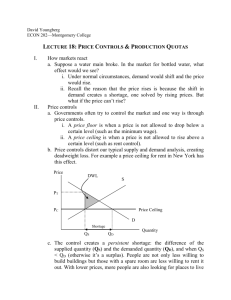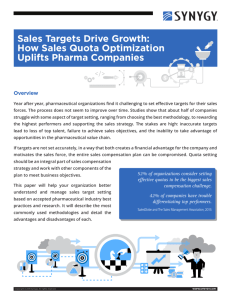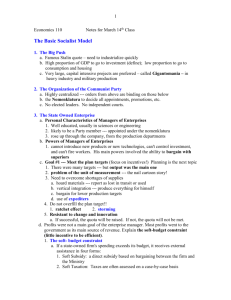Quantity Controls: Quotas
advertisement
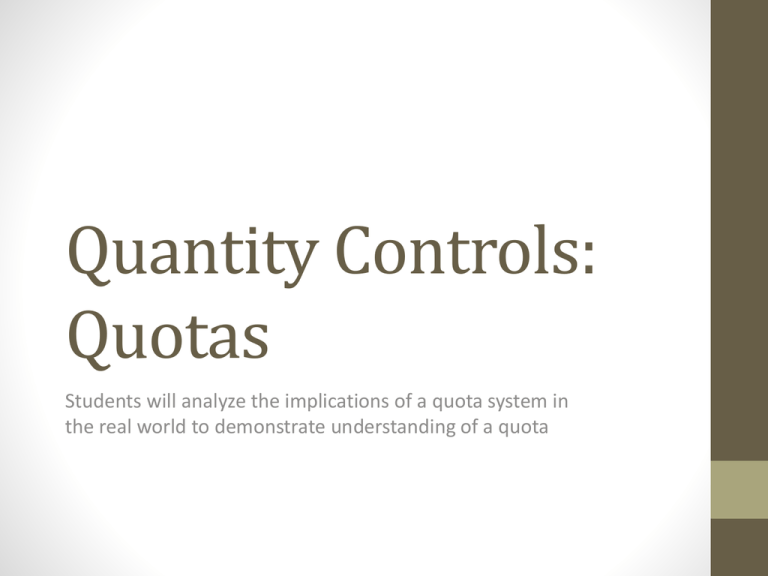
Quantity Controls: Quotas Students will analyze the implications of a quota system in the real world to demonstrate understanding of a quota NYC Taxi Medallion • 1930s = 11,787 • 2014 = 13,257 • Issued for a fee of $10.00 per license • Today, these medallions are sold for upwards of $10,000.00 per license • Quota system: gov’t regulation of quantity Market for Taxi Rides in NYC • Demand Price: the price at which consumers want to buy a given quantity ($5.00) • Supply Price: the price at which producers will supply a given quantity ($5.00) NYC Taxi Ride Market w/ Quote • Consumers willing to pay $6.00 per ride • Suppliers willing to accept $4.00 per ride • HUGE impact on the market for taxi rides! Quotas Effects—Deadweight Loss • Graph shows us 2 transactions: • 1) Taxi Rides ($4.00 and $6.00) • 2) Medallions (the “wedge”) • The “wedge” is the quota rent—range between demand price and supply price that gives us the value/rent of the license (medallion) per transaction Quotas Effects—Deadweight Loss (cont.) • Deadweight Loss: missed opportunities from not operating at equilibrium due to intervention • Rule: when demand price exceeds supply price there will be deadweight loss • Missed gains experienced by buyers and sellers D.L. = 1/2B×H Quick Note • Just like price floors and ceilings quotas can be ineffective when the quota (quantity control) they impose is greater than equilibrium • Quota>E.Q. = ineffective • Price floor>E.P. = ineffective



